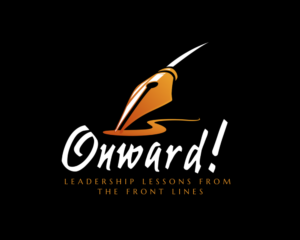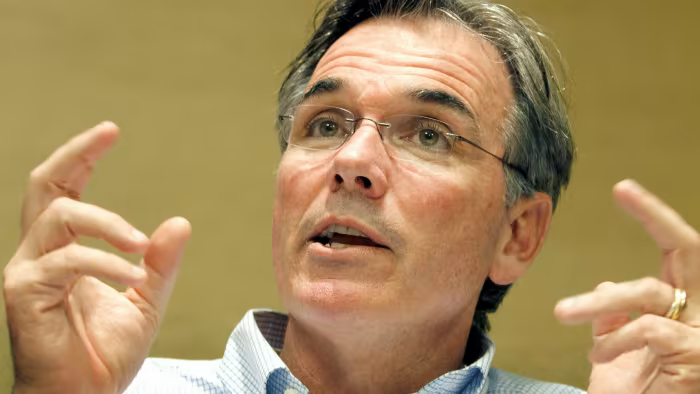Have you ever felt like you’re playing in a game rigged against you? It doesn’t take much reading of the news these days to feel like the deck is stacked. I had the pleasure of listening to both Oakland A’s General Manager, Billy Beane, and Michael Lewis, the author of the book, Moneyball, talk about the Oakland A’s journey and how Beane not only helped his desperately disadvantaged team beat better-funded rivals but how Oakland’s continued to do it for the past 20 years despite Beane’s “secrets” being exposed in the book. If you haven’t read the book, I can’t recommend it enough. It’s also an Academy Award-winning movie starring Brad Pitt, Jonah Hill, and Phillip Seymour Hoffman. It’s worth the watch too.
Moneyball details the historic run of the 2002 Oakland A’s and the data-driven methodology they used to compete with the bigger city teams like the New York Yankees and the Boston Red Sox. You see, unlike the NBA and the NFL, Major League Baseball heavily favors teams from larger media markets, as the teams have much larger payrolls. With extensive free agency, the big-market teams have payrolls that dwarf small-market teams like Oakland. Author, Michael Lewis, set off to find out how despite a $41 million payroll that was 33% the size of the Yankees’ $125 million the Oakland team could be competitive. The result was a book that has done more to transform an industry than any other I’m aware of.
I think some of those lessons are relevant far beyond baseball and apply directly to our industry.
1. Find creative ways to solve a problem. The A’s were like many small-market teams at the time. They were losing great players to teams with bigger budgets who could pay substantially more. Instead of simply accepting the “rules” of the game and competing on the same platform, Beane got creative. He hired an economist and statistician and dusted off some long-discarded theories about what actually increased the likelihood that his team would win. It turns out that it was not at all what people thought. As a result, collective baseball wisdom and management valued factors that were not aligned with what actually makes baseball teams win. Thus, the Oakland A’s used their limited funds to pay players who had good statistics around what actually won games despite having poor numbers around what the experts thought won games. They not only won the division but set the major league record for most consecutive wins.
Have you ever thought you’re playing a rigged game? Or that your opponents have a built-in advantage? If so, have you tried to approach the problem differently or turn it into an advantage?
2. Find undervalued assets. Like most businesses, baseball’s assets are its people. Beane knew that he couldn’t compete paying the market price for players known to everyone for helping teams win. So he found undervalued ones. They may have looked a lot like a baseball team was supposed to look (author Michael Lewis joked that they were not a group of people one wanted to see naked in the locker room), been slower runners or pitchers with weaker arms, but they were good at doing what it actually takes to win games.
Where are our undervalued assets? Us so-called experts tend to think of extraversion, loud type-A personalities, and strong outward confidence, as qualities critical for successful leadership. But more recent studies indicate that other qualities are far more effective for creating winning teams – empathy, listening, building psychological safety etc. And the people that hold those skills may not look like the ones we typically think of as successful leaders.
3. Hire outsiders. Before Moneyball and Billy Beane, everyone in the baseball industry who worked in management had played the game. How could you manage a major league team unless you’d been in the majors? Beane hired an Ivy League economist who had never played baseball. 20 years later, Beane reports that only two general managers (him and one other) are former players. That outside perspective has gone from shunned to mandatory.
Our industry is similar to baseball, in that so many have literally grown up in the industry. How do we bring in new people? Would they see the industry in new ways? How do we make modern agriculture more attractive and accessible to non-ag people?
4. Trust the data and the process. Finally, Beane talked about trusting the data and the process. He then trusted the insights gleaned from the data and trusted it to work out over the long term. By focusing on the process and not the outcome, he’s brought long-term thinking to a notoriously short-term game. Most impressively, he’s helped the A’s consistently outperform others in the league for the past 20 years despite his “secrets” being published in a New York Times bestseller.
Farming also has more data than we know what to do with. We often get focused on the outcome for one season. But if we believe the agronomic data, have the people to analyze it, and trust the process, we focus less on the season-by-season approach and focus on the long-term improvement of the profitability of our farmer’s business. If we do that, like the A’s, we are far more likely to find success not just for the season but for generations to come.
So if you feel like you’re ever in a rigged game, think like Billy Beane. Get creative, find undervalued people, mix in some fresh perspectives, and trust the science and the process. It’s difficult, but if you can do it, you will not only be able to compete with your bigger rivals, you will beat them.
Onward!
Jeff





